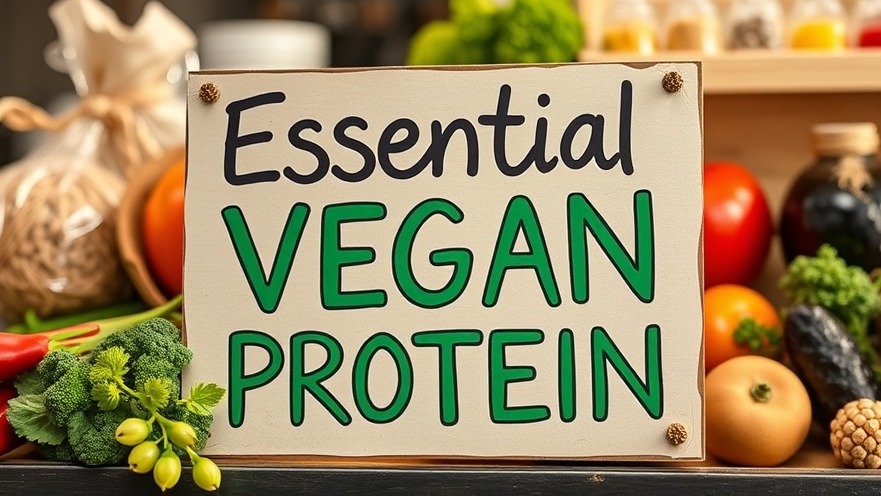
Understanding Essential Amino Acids in a Vegan Diet
When considering a vegan diet, one of the most crucial aspects to address is how to ensure you're getting enough essential amino acids. Many people wonder if a vegetarian or vegan diet can provide them with all the necessary protein they need. The answer is a resounding yes, as long as you're consuming a diverse range of plant-based foods. Incorporating beans, nuts, seeds, and green vegetables into your meals will not only help you meet your protein needs but also provide essential amino acids that support your health.
In 'Vegan Protein & Supplementation: What You MUST Know to Stay Healthy,' the discussion dives into key dietary considerations in a vegan lifestyle, prompting a deeper analysis of effective nutrition practices.
Navigating Protein Sources and Their Balance
While plant-based sources of protein are abundant, understanding their amino acid profiles is vital for optimizing health. For instance, foods high in methionine, such as Brazil nuts, can complement a diet low in this particular amino acid. Surprisingly, a lower methionine intake is actually beneficial, as research indicates that high amounts may promote cancer cell replication. By selectively adding various food sources and ensuring balance, individuals can create meals that support their overall well-being.
The Importance of Diet Variety
Diet variety is key to preventing nutritional deficiencies. As recommended by many health experts, consuming a broader spectrum of foods while limiting fruit intake as one ages is essential, as too much sugar can lower protein levels. Variability and moderation are at the core of a balanced vegan diet, as following a restrictive regimen can lead to long-term health issues.
The Risks of Extreme Diets
Adopting an extremely restrictive diet, such as a 80/10/10 raw vegan diet, might not be suitable for everyone. Although some individuals may flourish, a significant number could face serious health challenges. Instances have arisen where people on restrictive diets have developed severe health complications, sometimes even leading to hospitalization. Those engaging in strict diets should exercise caution and prioritize a balanced approach that takes individual body needs into account.
Supplementation: When It’s Necessary
For those on a vegan diet, especially older adults, supplementation can play a critical role in overall health. For omega-3 fatty acids, for instance, it is essential to monitor blood levels to determine if additional supplements are necessary. While some individuals naturally convert plant-based omega-3 sources to usable forms, many do not. Therefore, it is advisable to consult with a healthcare professional and conduct a blood test to ensure adequate uptake of these vital nutrients.
Conclusion and Takeaway
In summary, while navigating a vegan diet, understanding protein sources, maintaining a variety of foods, and being aware of potential deficiencies through testing are all fundamental components to thriving on plant-based nutrition. The conversation surrounding veganism and health remains dynamic, and being informed empowers individuals to make choices that align with their health goals.
 Add Row
Add Row  Add
Add 




Write A Comment